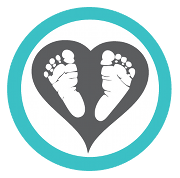Another good post from
News Moms Need (March of Dimes). I'm reprinting here:
Medical research on the prevention of food allergies unfortunately is limited
and incomplete. After reviewing a wide range of medical research, the American
Academy of Pediatrics has made these recommendations about food allergies in
children:
• Avoiding certain foods in pregnancy does not appear to prevent
food allergies in children.
• We don’t know for certain if breastfeeding can
prevent or delay food allergies. For infants who have a parent, brother or
sister with a food allergy, drinking only breast milk for at least four months
may reduce the risk of allergy to cow’s milk. Certain formulas that do not
contain cow’s milk may also reduce the risk.
• Soy-based infant formula does
not appear to prevent food allergy.
• Doctors recommend that most babies
start eating solid foods between 4-6 months of age. Some people have thought
that food allergies might be prevented if parents delayed giving their babies
certain solid foods (for instance, fish, eggs, peanut butter). But current
research doesn’t support this idea.
Thankfully, food allergies are often outgrown during early childhood.
Approximately 80% to 90% of egg, milk, wheat, and soy allergies are gone by age
5 years. Some allergies are tougher and last longer, so you need to be certain
they are gone before reintroducing the food to a child’s diet. For example, AAP
says 1 in 5 young children will outgrow a peanut allergy and fewer will outgrow
allergies to nuts or seafood. Your pediatrician or allergist can perform tests
to track your child’s food allergies and watch to see if they are going
away.
Medical research about food allergies is continuing and we’ll give you
updates when we learn more. If you have any questions about food and your baby,
ask your child’s health care provider.

























Lots of Good information in your post, I favorited your blog post so I can visit again in the future, Thanks.
ReplyDelete